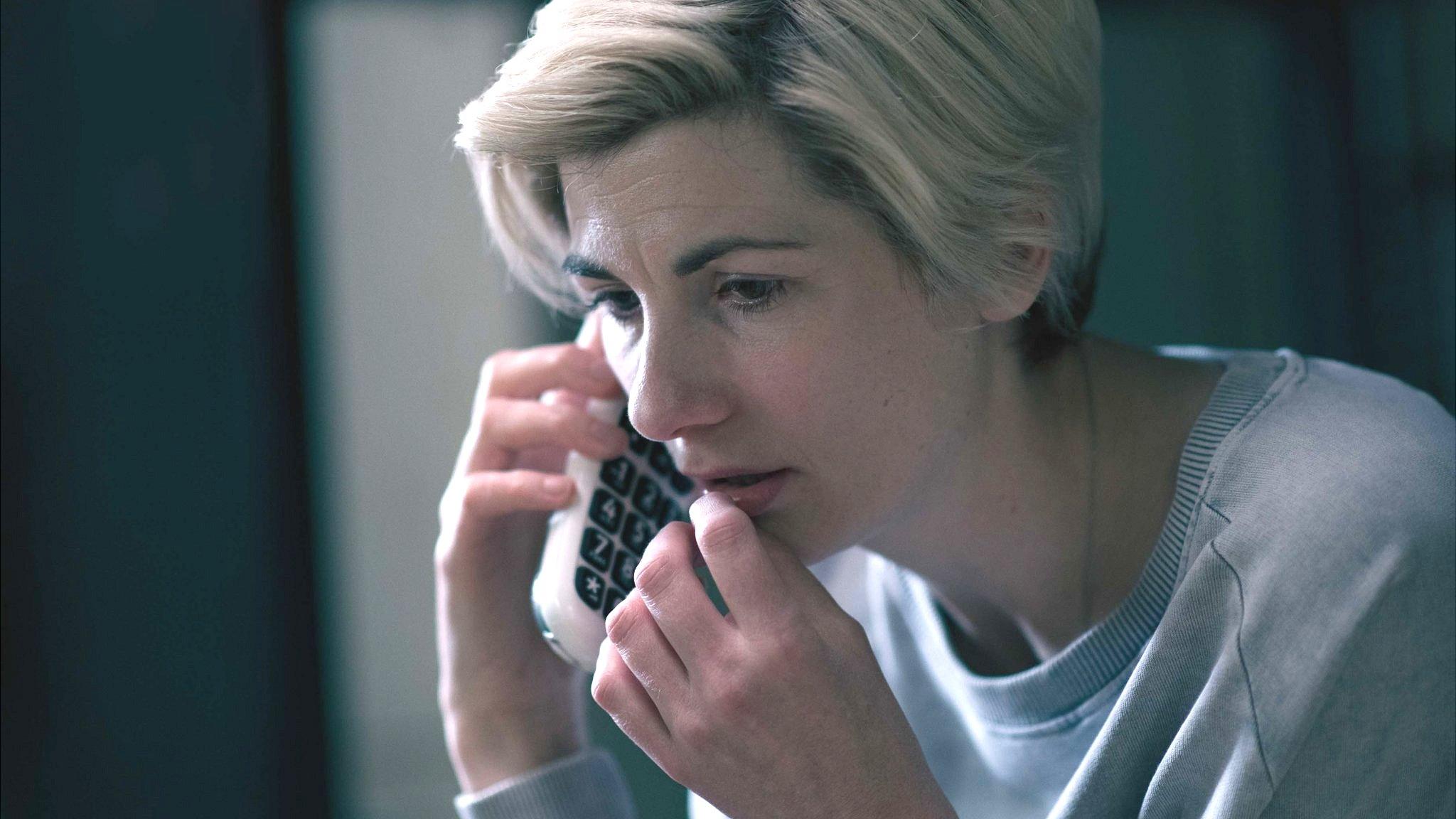The prisoners swapping crime for dressmaking
The prisoners swapping crime for dressmaking
- Published
Machinists are chatting over the sound of overlockers amid scattered rolls of fabric, but despite its initial appearance, the Making for Change workshop is anything but ordinary.
The training facility is in a women's prison in Surrey, and outside is an imposing razor-wire topped fence, tight security checks and iron-clad gates.
“At the moment, we’re in the midst of a huge quantity of scrunchies,” says HMP Downview inmate Suzanne, as she gestures at a pile of hair pieces being put together by seamstresses in the fashion studio.
“Two months ago we were in the middle of 3,500 coffee bags which were being recycled.”
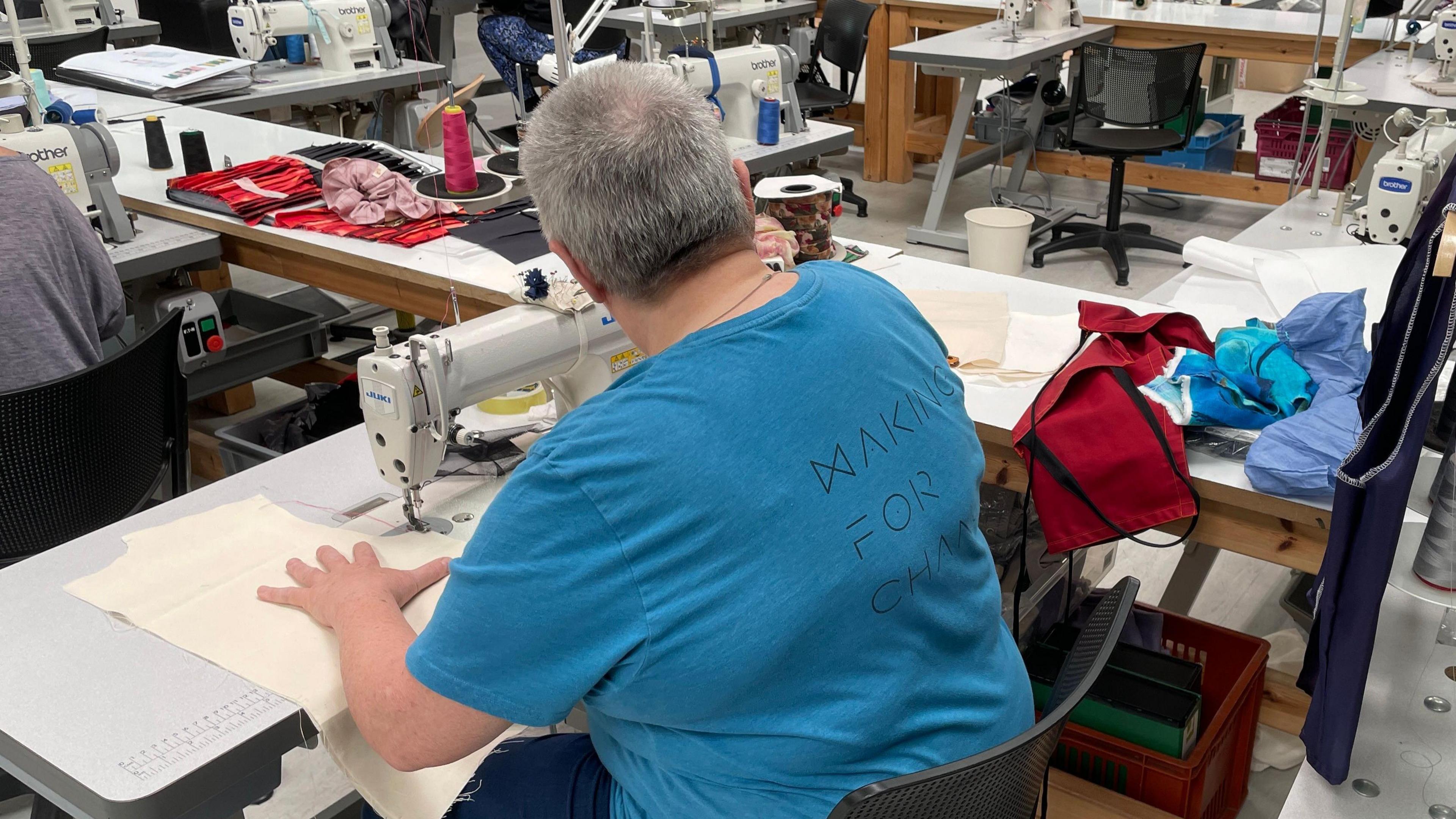
Suzanne says the fashion studio offers respite from being imprisoned
Set up 10 years ago, the unit - a partnership between the London College of Fashion (LCF) and the Ministry of Justice - is one of the initiatives rolled out by Downview to reduce reoffending rates.
Suzanne, 61, who is in prison for a fraud offence, joined the workshop in July.
“For most of us here, this is our happy place,” she says, as she shows off a corduroy jacket she is making as part of a fashion design qualification.
“The prison’s out there and we’re in here. We’ve got a job to do, so we try to get on with it.”
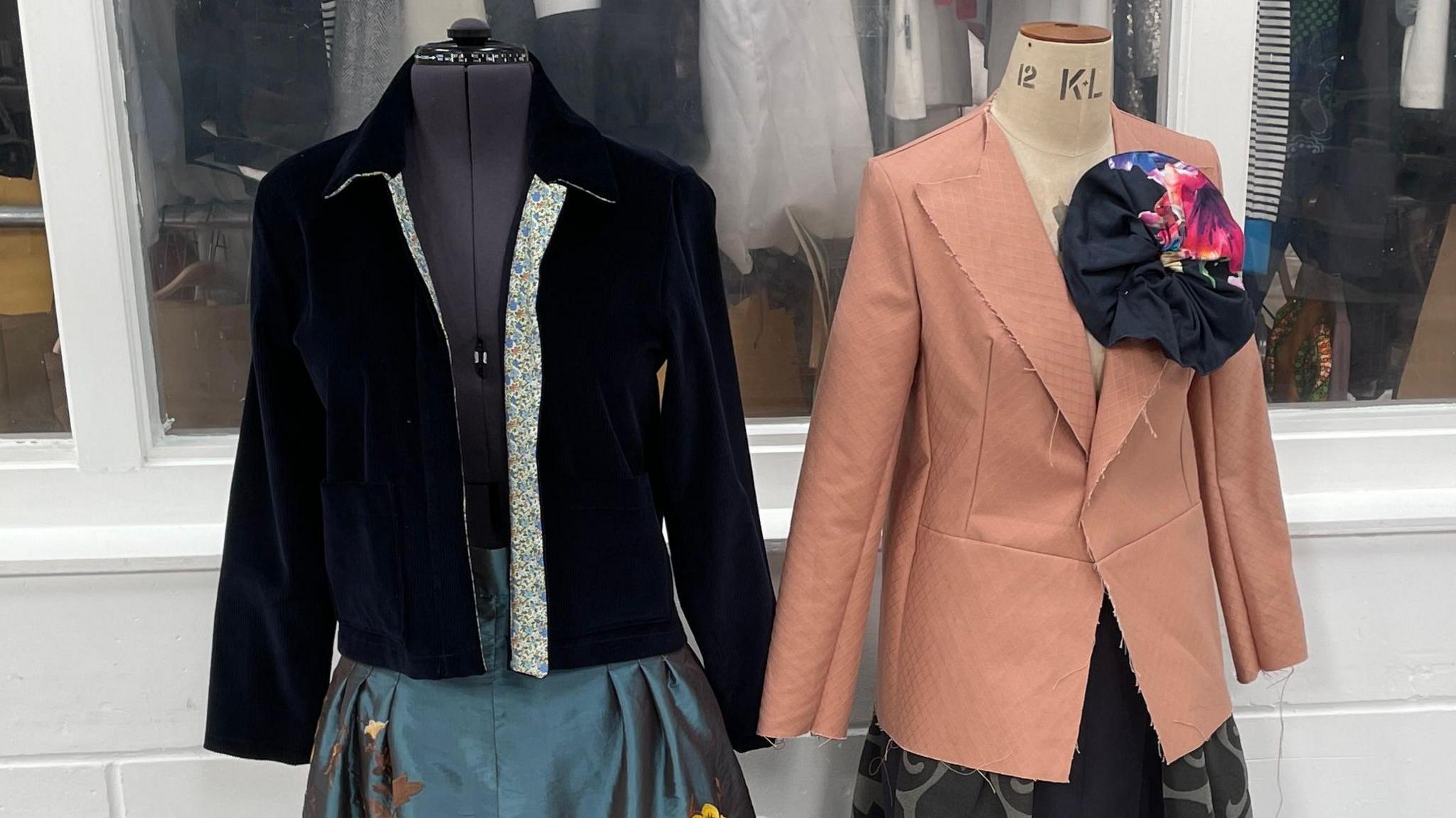
Suzanne is currently working on a jacket and skirt as part of a qualification
At the prison, offences range in severity, with some inmates serving life sentences, but training opportunities are offered to those deemed to be low or medium risk to others.
The workshop offers commercial production services, with profits being reinvested in the project, while the LCF-run creative hub Poplar Works, in east London, employs some of the prison leavers who qualified at the unit and live within commuting distance.
Downview business and community engagement manager John Fraser says the prison also tries to seek out local opportunities for those unable to travel to London.
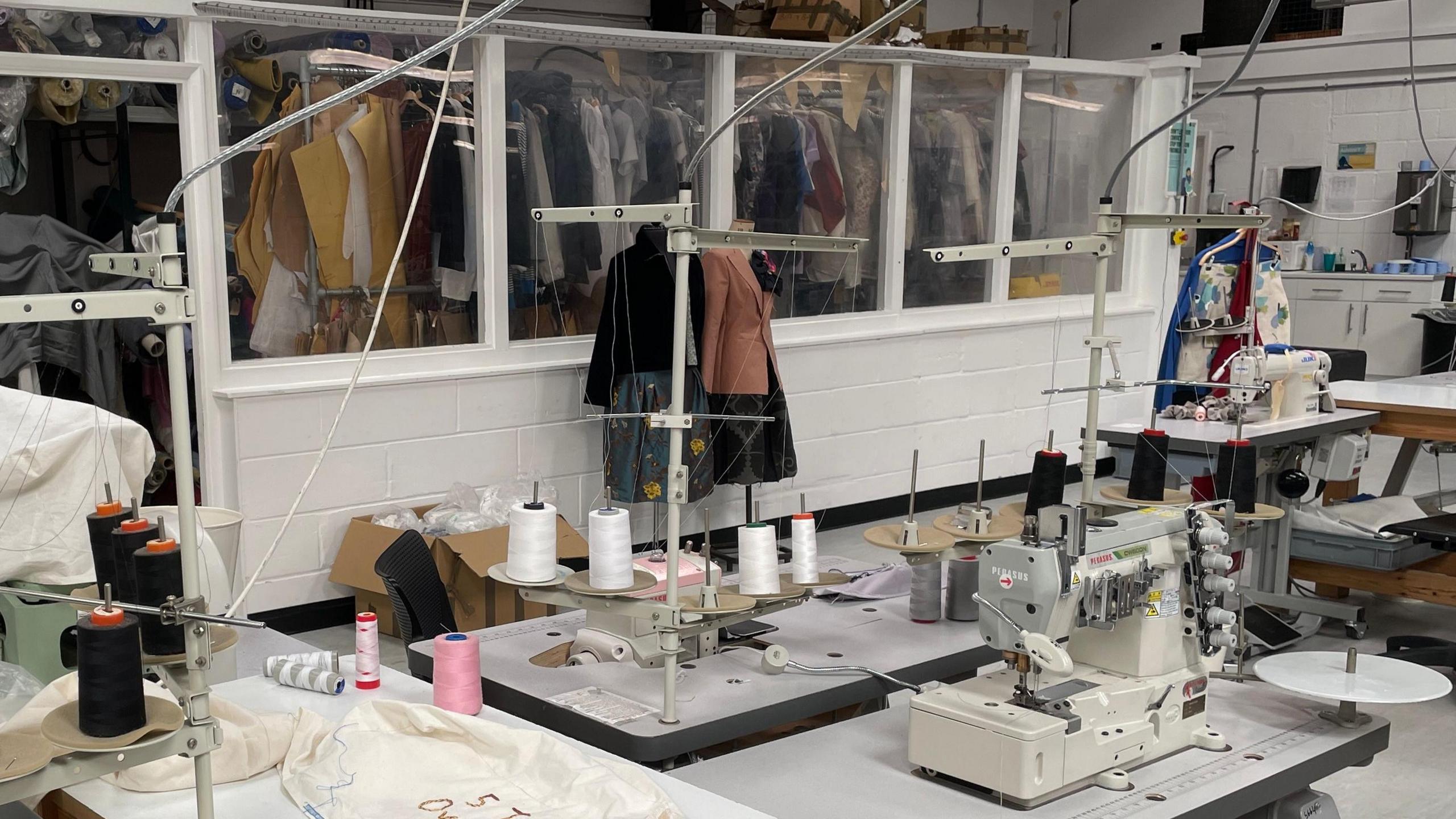
Suzanne hopes to get release on temporary licence to work at Poplar Works before her sentence ends
It’s Suzanne’s hope to find employment in the industry, which, according to the UK Fashion and Textile Association, supports 1.3 million jobs in the UK.
“The UK is crying out for trained machinists,” says Mr Fraser, but he adds that his main motivation is to offer opportunities to women that aren’t “mundane" and that "could change people’s lives”.
At the prison’s Clink Events kitchen, run by The Clink Charity, women are busy preparing a menu that includes miso-glazed cod and cauliflower steak for 490 people at London’s Guildhall.
As she stirs up onions, chillies and peppers to add to a vegetarian carpaccio, Simone, 35, who is undertaking an NVQ in food preparation and cooking, says the role “drives me to better myself”.
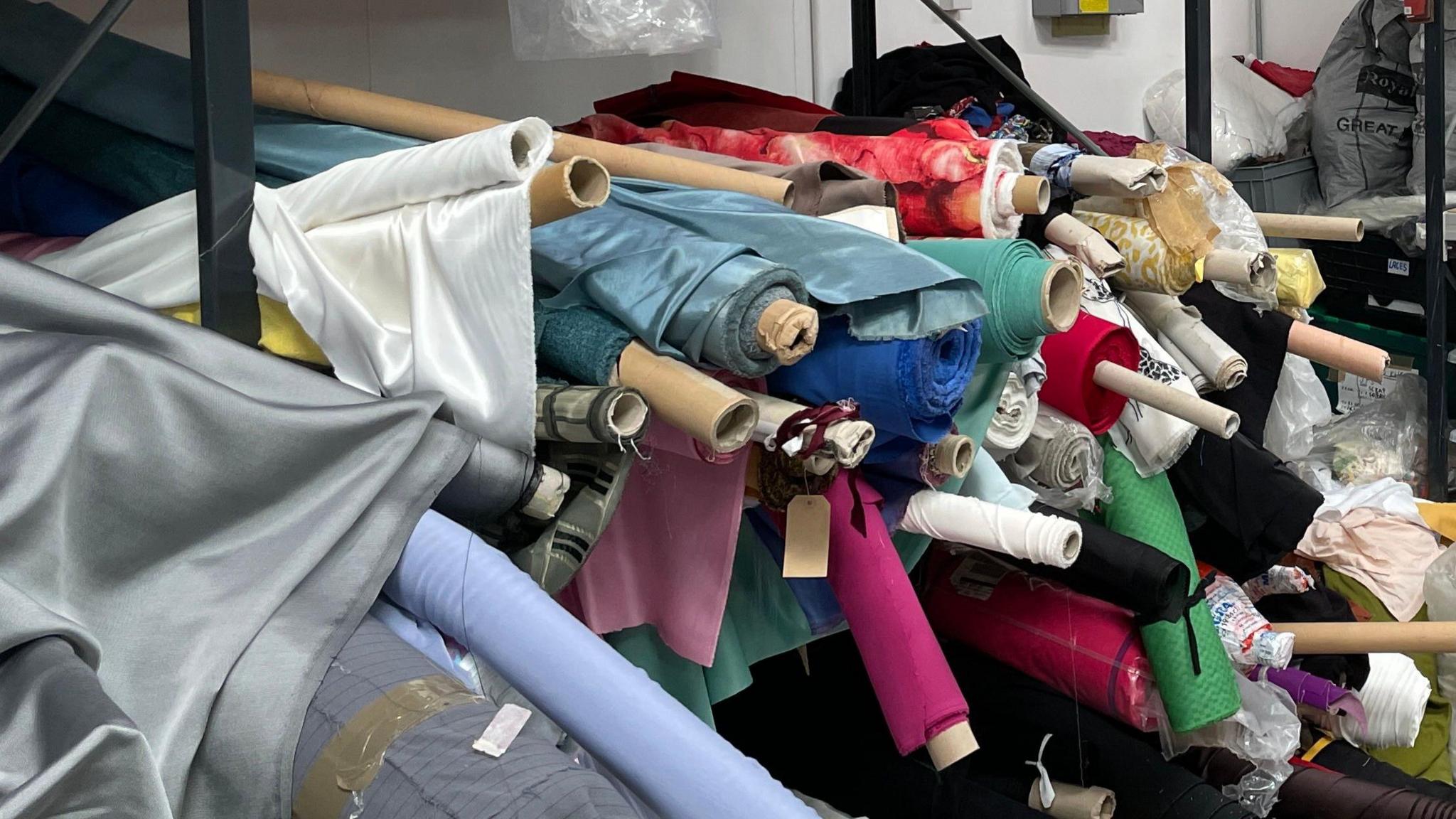
Beyond plugging skills gaps, Mr Fraser says he wants to offer training that isn't "mundane"
“You need something in life to motivate you and challenge you,” she adds.
“On the outside, in the next five years when I get released, I’d want to own my own restaurant.”
Data from Clink shows that across the four prisons it works at, 52% of its students who were released last year gained employment.
Mr Fraser says helping prison-leavers into gainful employment helps him fulfil his “goal” of “never seeing them again”, because they are less likely to reoffend.
It’s an ambition shared by the government, which in 2022 launched apprenticeships for those nearing the end of their sentences in a bid to cut crime.
Latest government data shows about a fifth of female prisoners reoffend, but this has generally fallen in the past decade.
Figures, external show that in 2022-23, 30% of all those released from prison were employed six months after their release.
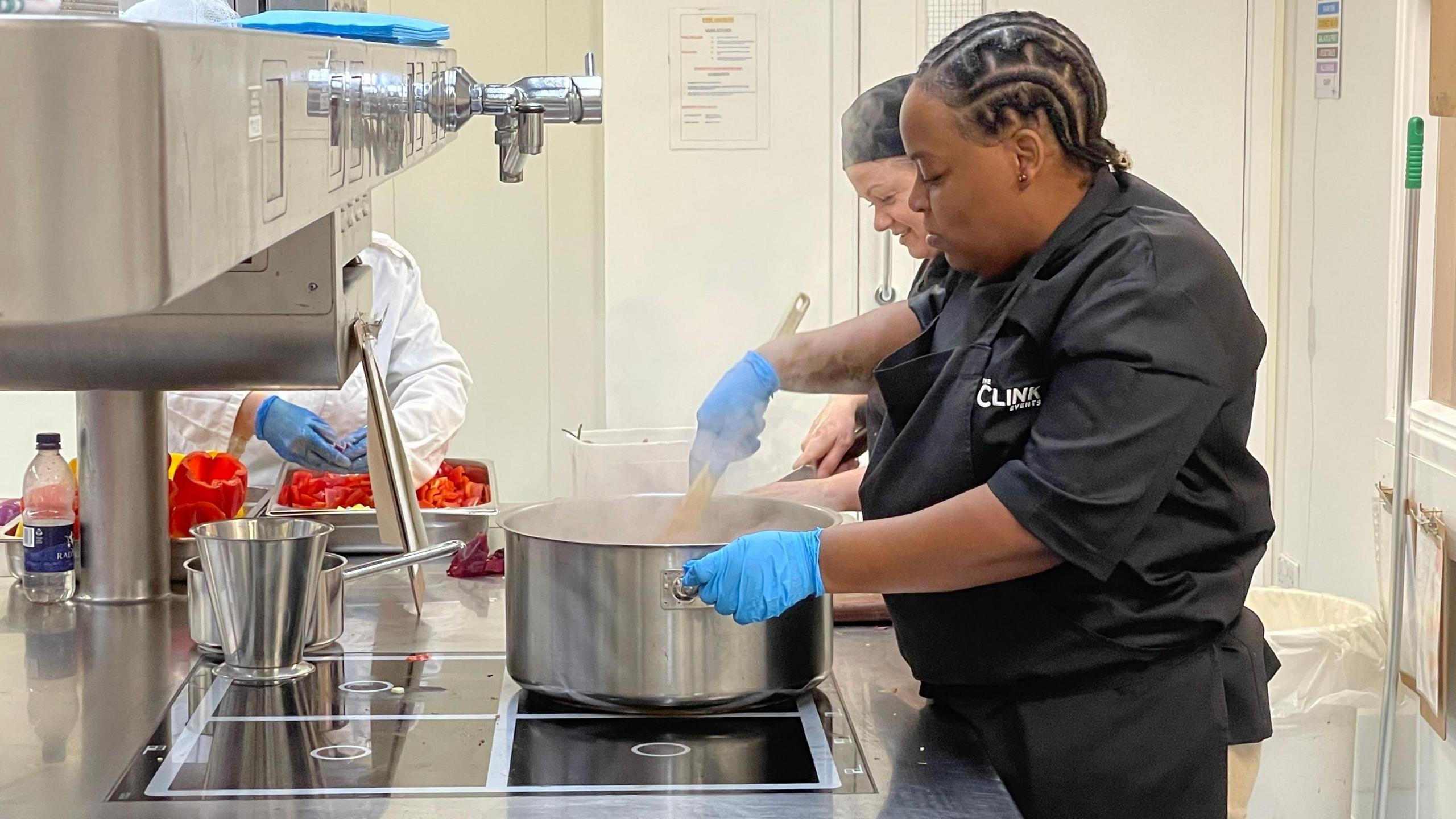
Simone hopes to open a buffet-style restaurant once her prison sentence is spent
But Mr Fraser says training serves another purpose - to boost the general wellbeing of prisoners.
“As far as I’m concerned everybody can make a mistake. We’re all human,” he adds.
“Lots of ladies here will be suffering from trauma, but the idea behind some of the workshops is that if we make the workshops as friendly and as comfortable as possible, it builds up confidence again."
Mary, who is working at the Max Spielmannn photographic workshop, believes the training has offered her a “sense of purpose” after being jailed for a fraud offence.
Inside HM Prison Downview, women are earning qualifications for life after time.
At the workshop, which looks similar to the retail stores and offers photo printing services to inmates wanting a family memento, she is learning photo editing skills and how to create canvases.
According to the MoJ, some 75% of learners who complete the programme enter employment in a branch upon release.
Another 10% of prison leavers who finish the training are "work ready" but aren't able to enter employment immediately due to a range of factors, including temporary housing situations.
The MoJ says around 50% of that cohort are employed by Timpson - owners of Max Spielmannn - at a later date.
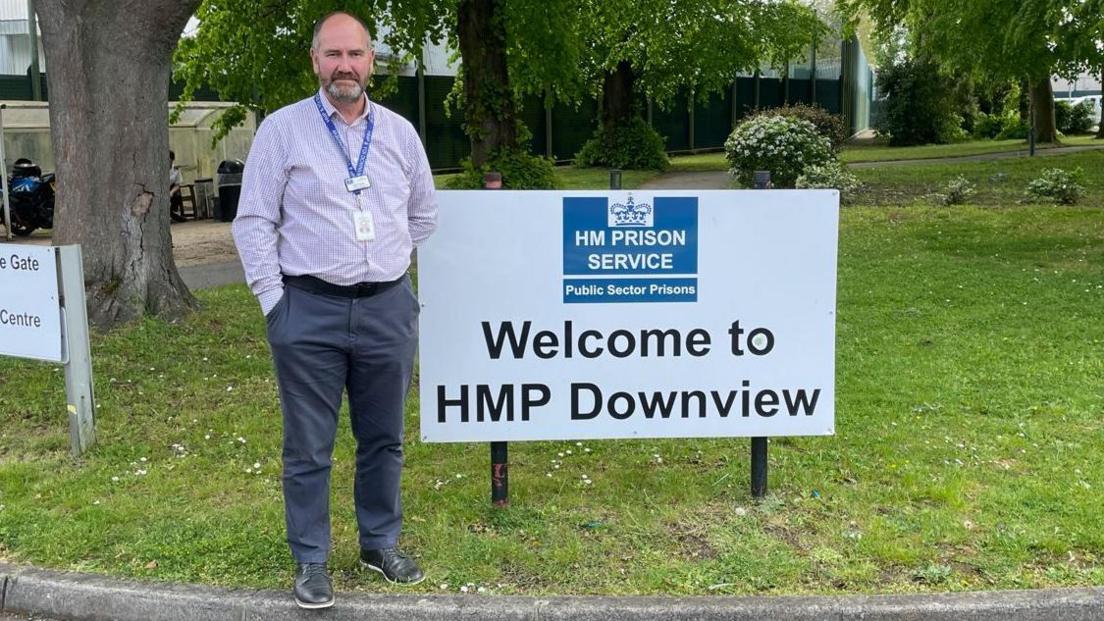
Mr Fraser says he doesn't ask for details about the crimes his prisoners have committed
But Mary, who is in her 30s, is focused on what the training can bring her during her sentence.
“It offers this connection between you and the real world,” she says, adding that being sentenced last year had led to “very fast mental health deterioration” for her.
“Coming here, I felt like I hit a spring or a lake in the middle of a desert.”
Prison and Probation Minister Ed Argar said: “Our drive to get former offenders into employment is cutting crime and protecting the public, while also boosting our economy.
“Prison workshops form a key part of our strategy to reduce reoffending by equipping prisoners with the skills and qualifications to find stable, long-term jobs on release.”
(Mary's name has been changed to protect the identity of the interviewee.)
Follow BBC Surrey on Facebook, external, on X, external. Send your story ideas to southeasttoday@bbc.co.uk , external or WhatsApp us on 08081 002250.
Related topics
- Published29 December 2023
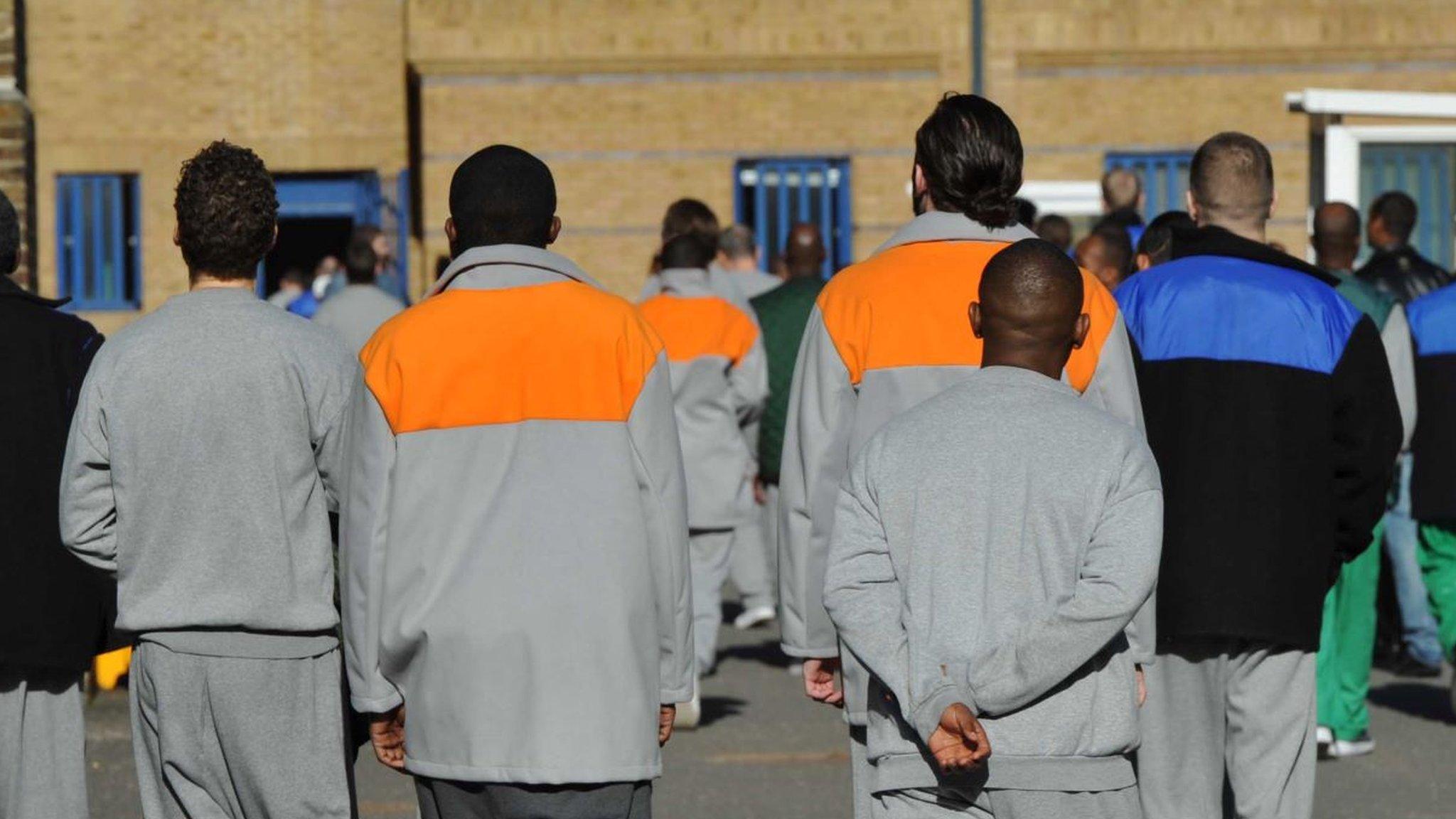
- Published8 March 2023
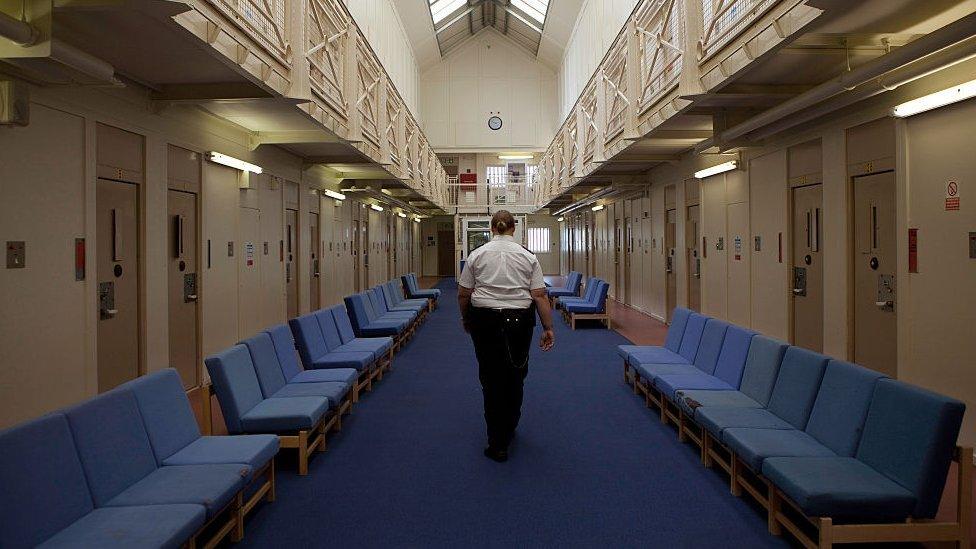
- Published19 November 2023
